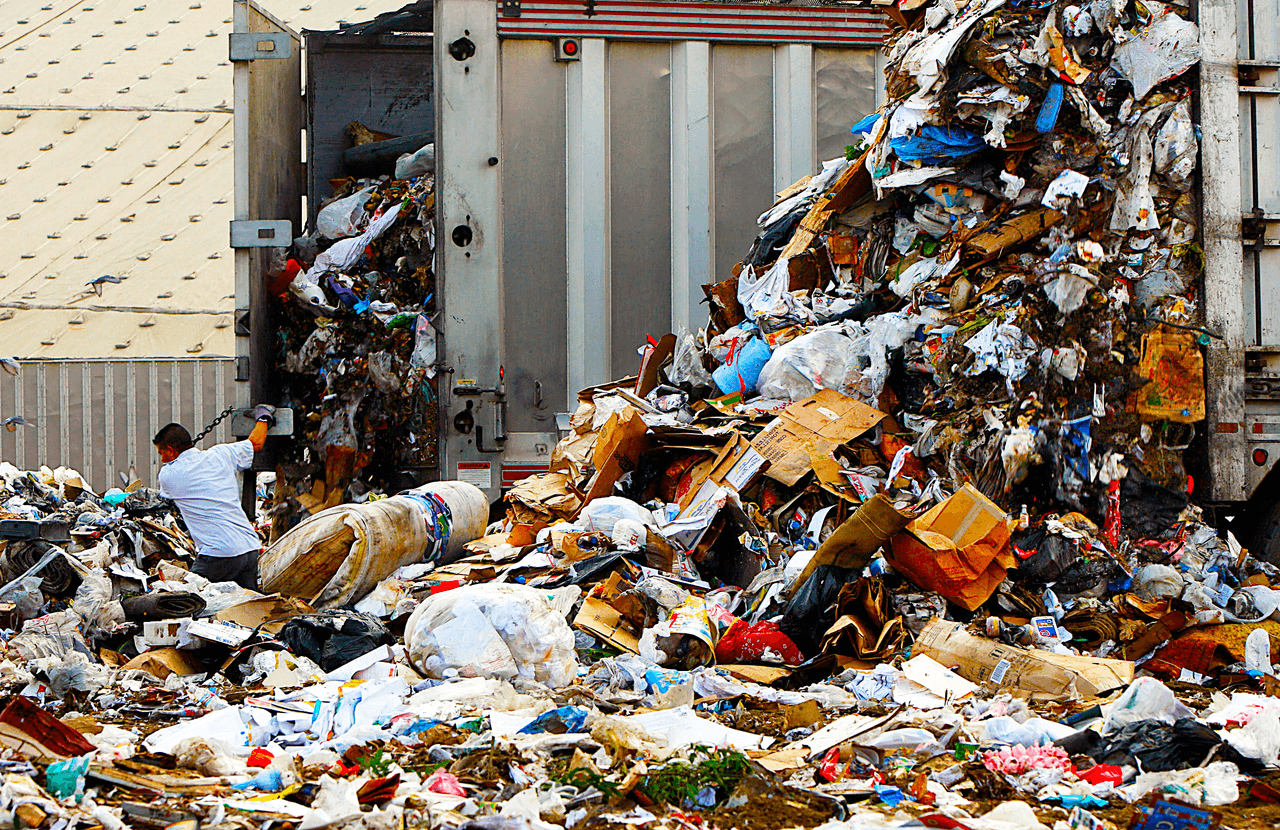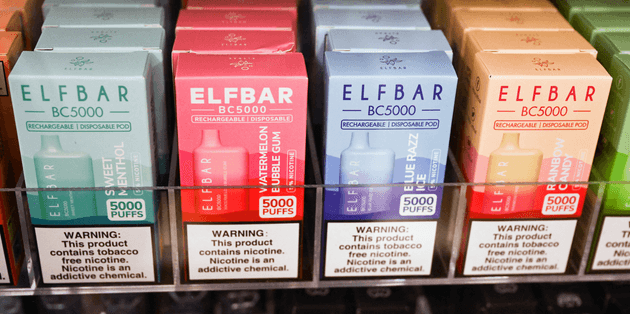
Lithium being trashed by the tonne as disposable vapes flood the US market
Five disposable vapes are being thrown away every second by young people in the US despite the devices containing reusable lithium-ion batteries. Over a year, this amounts to 150 million devices – which together contain enough lithium for about 6,000 Teslas.
Lithium is an in-demand metal because of its use in rechargeable batteries that power everything from mobile phones to electric cars. But producing it is a complex process that typically generates high carbon emissions.
A survey of more than 2,700 young people carried out by the Truth Initiative, a public health organisation working to end smoking and vaping, revealed that more than half of the 15- to 24-year-olds who vaped use disposable devices. Of those, two thirds put their used devices straight into the household trash.
Vapes (or e-cigarettes) use batteries to heat a liquid that is inhaled. Even though most disposable vapes contain a rechargeable lithium-ion battery, they are designed to be discarded once the liquid runs out.
The Environmental Protection Agency (EPA) told the Bureau that vapes are being incorrectly discarded in household trash because they “are often branded as ‘disposable’”. This leads to the entire device, including its battery, being thrown away in household trash.
Demand for lithium for batteries is forecast to increase fivefold by 2030, according to one industry consultant.
“We are definitely dependent on lithium-ion batteries for the foreseeable future, especially for cars,” says Alissa Kendall, a professor at University of California Davis who worked for the state’s advisory council on electric vehicle battery recycling. “We don’t have anything that’s really as competitive with respect to cost and energy density.”
She described the use of rechargeable lithium-ion batteries in single-use vapes as “really terrible”.
 Elf Bar has soared in popularity to become the most used disposable brand in the US
PT Fallon/AFP via Getty
Elf Bar has soared in popularity to become the most used disposable brand in the US
PT Fallon/AFP via Getty
Lithium-ion batteries are defined as hazardous waste because of their toxic nature and propensity to catch fire when damaged. A report by the EPA found 245 fires that were caused by, or likely caused by lithium-ion batteries had occurred between 2013 and 2020 in waste facilities such as garbage trucks and warehouses. One incident resulted in four firefighters being taken to hospital to be treated for chemical burns.
Despite this, it is perfectly legal to dump these batteries in the household trash in the US. Unlike in the European Union, for example, vapes do not need to undergo specialist recycling, nor do vape producers bear obligations for their products.
Kendall said that the recycling networks in the US “aren’t very good”, despite the fact that the country has the necessary infrastructure.
“It is often onerous for a consumer to know what to do with a small device,” she said. “Even in California it’s really hard to actually get rid of [electric and electronic] waste correctly. Why is anyone going to do it right when it’s so easy to just stick it in the bin?”
The EPA said that a 2021 executive order from Joe Biden on supply chains is high on its list of priorities. It added that “increasing the recovery of critical minerals such as lithium from recycled batteries is an important part of this effort”.
This new data suggests that disposable vapes are now the most popular variety of e-cigarette in the US among young people, overtaking pod-based systems, such as Juul, and vape pens – both of which allow refills of vape liquid and therefore last longer.
The research shows Elf Bar has risen steeply in popularity to become the most used disposable vape brand by young people. An investigation by the Bureau earlier this year found that Elf Bar and its sister brand Geek Bar are the most popular disposable vape products in the UK, where two devices are being thrown away every second.
Elf Bar and Geek Bar did not respond to requests for comment.
Header image: A worker unloads a truck at Puente Hills Landfill, California. Credit: Luis Sinco/Los Angeles Times via Getty
Reporters: Matthew Chapman and Fin Johnston
Impact producer: Paul Eccles
Global Health editor: Chrissie Giles
Global editor: James Ball
Editor: Meirion Jones
Production editors: Alex Hess and Emily Goddard
Fact checker: Andrew Wasley
Our reporting on tobacco is part of our Global Health project, which has several funders. Our Big Tobacco project is funded by Vital Strategies. None of our funders have any influence over the our editorial decisions or output.
-
Subject:
-
Area:




